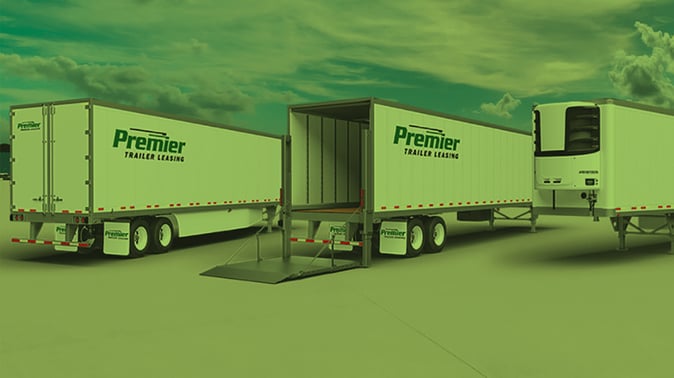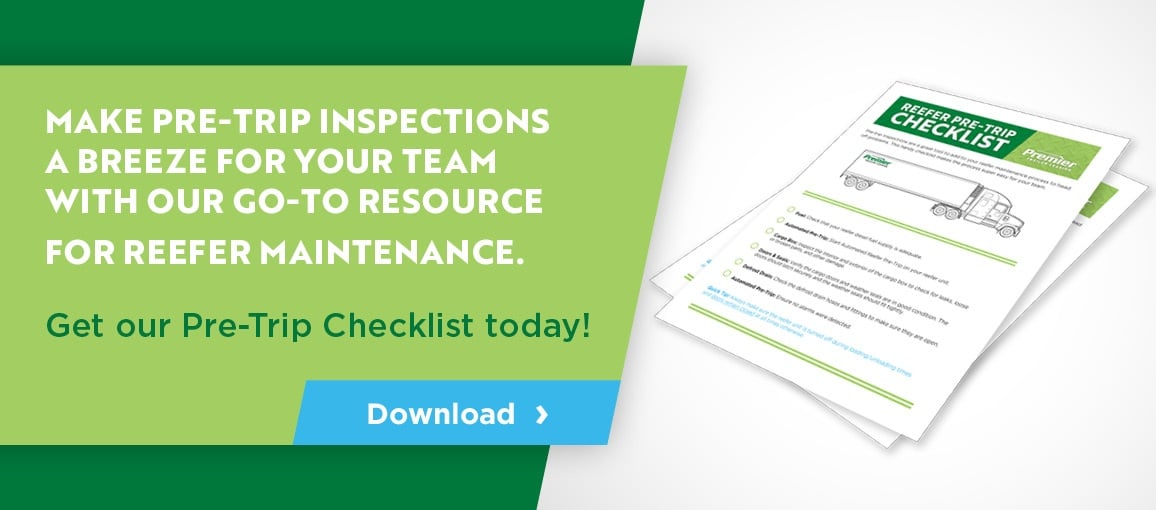If you're new to the transportation industry, you may be wondering what types of trailers are available and what you need to know about them. Whether you're a logistics manager, dispatcher, or fleet leader, understanding the basics of trailers is crucial for ensuring that your cargo is transported safely and efficiently. Read on to learn more and get started on the road to success in the transportation industry!
Understand the Basics of Trailers
Trailers are used for long-distance transportation of goods and are available in a variety of types, including dry van, flatbed, refrigerated trailer (also called reefers), tanker, and more. Knowing the different types of semi-trailers and their uses is essential when choosing the right one for your cargo. (For a handy go-to-resource for your desk, download our Trailers 101, Trailer Tech 101 and Specialty 101 Guides here.)
Know the Dimensions and Weight Limits
Trailers come in various sizes, and it's essential to know the dimensions when selecting the right trailer for your cargo. The most common dimensions for trailers are 48 feet and 53 feet in length, 8.5 feet in width, and 13.6 feet in height. Additionally, every trailer has a weight limit that is determined by federal and state regulations based on structure and material of the unit. Be sure to check the weight limit for the trailer you're planning to use and that your cargo does not exceed it. Learn more here.

Safety is a Top Priority
When transporting cargo, safety and maintenance should always be a top priority. All safety features such as brakes, lights, and tires, must be in good condition at all times. It's also important to secure your cargo properly. This will prevent your cargo from shifting during transportation. Regular inspection and attention to detail of your trailer, will ensure that it is safe and roadworthy.
Stay Compliant with Regulations
Navigating the heavily regulated transportation industry requires a keen understanding of federal and state regulations. Rules regarding hours of service, weight limits, and load securement requirements are just a few examples of what you need to be aware of. Ensure that you're well-versed in all the applicable regulations and follow them accurately to stay compliant and successful in this industry. The great news is that a lot of our equipment have tools that can help cover certain requirements.
Use Technology to Your Advantage
The transportation industry is constantly evolving, and technology is playing an increasingly important role in improving efficiency and safety. Consider using technology such as GPS tracking, Reefer temperature monitoring and cargo tracking systems to help you manage your operations more effectively. Learn more about the food safety modernization act.
Selecting the Right Trailer for Your Need
In order to select the appropriate trailer for your hauling project, it is crucial to have a comprehensive understanding of the unique needs and requirements of the cargo being transported. Additionally, ensuring compliance with federal and state regulations regarding weight and size limits is essential. By taking both of these factors into consideration, you can effectively determine the most suitable trailer for your transportation needs.
Trailers may seem like the easy part of the job, but in reality, they are a crucial component of managing your transportation needs. To ensure success, it's essential to know the basics of trailers, understand your cargo's specific requirements, and utilize technology to your advantage.
_________________________________________________________________
Your resource for information - At Premier Trailer Leasing, we strive to make your day better, whether that’s through supporting our customers with our national branch network, our large growing fleet and flexible approach to leasing, or by sharing our experience and expertise. Give us a call if you'd like to discuss other ways, we can be a resource for you.
Ryan Moenke is a Regional Sales Manager for Premier Trailer Leasing. With over a decade of experience in creating and building partnerships with our team and customers, he leads the way in find the best solution for our customers. Constantly looking for new ways to help our customers be successful in their operation, whether it's sharing industry knowledge, access to equipment, employee training or simply connecting the dots with partner vendors that can help.






.jpg?width=960&length=960&name=924x518_MM_aging%20(1).jpg)